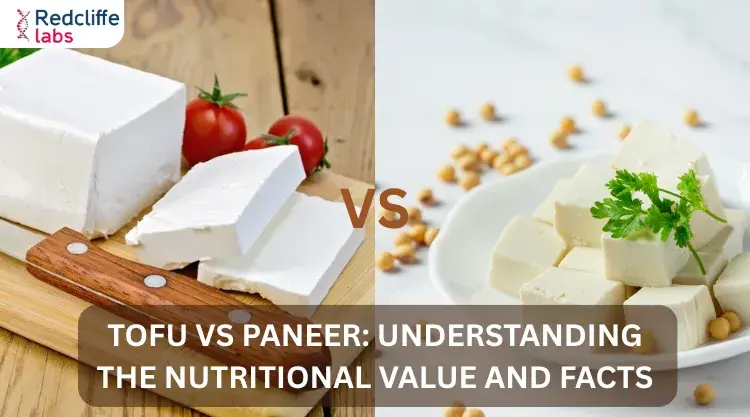10 Incredible Pistachios Benefits, Its Nutritional Value, and Side Effects

Medically Reviewed By
Dr. Geetanjali Gupta
Written By Muskan Taneja
on Jan 17, 2025
Last Edit Made By Muskan Taneja
on Jul 19, 2025

Pistachio is a member of the cashew family. These small tiny nuts first originated in Persia in the 16th century. Later, it gained popularity for its impeccable pistachios' benefits and taste. Countries like the USA, Iran, and Turkey hold 90% of the global share. Meanwhile, Afghanistan, Spain, and Syria comprise the remaining 10%.
India imports pistachios from around the world, and Iran is the largest exporter to India. In 2021, India imported over 13,000 metric tons of pistachios, an increase of 34% from 2020.
This blog will discuss pistachios' benefits, nutritional value, and side effects. So, let’s begin.
Health Benefits of Pistachios
People have been consuming pistachios, which some may call pistas for centuries. These tiny, medium-sized nuts are a good source of protein, fiber, and antioxidants, especially for vegans and vegetarians. Eating pistachio nuts has various benefits.
-
Pistachios aids in Weight Loss.
-
They may improve Cardiovascular Health
-
They are helpful for people with diabetes
-
It supports digestive health.
-
They are good for eye health.
-
Pistachios help lower cholesterol and blood pressure.
-
Pistachios can reduce the risk of Colon Cancer.
-
Pistachios may promote healthy Gut bacteria.
-
Pistachios may promote blood vessel health.
- Pistachios help in cognitive health.
Let’s delve deep into these pistachios' benefits.
Aids in Weight Loss
Nuts are high in fiber. Still, the question that pops up is, ‘Are pistachios good for weight loss?’ The answer is yes.
Pistachios are high in protein and fiber and low in calories, making them great for weight loss. Their high nutrition can keep you full for a long time and help you curb cravings.
Eating pistachios daily may help lower blood pressure and increase fiber intake. The increase in fiber content helps improve gut health, which collectively helps with weight loss.
The structure, i.e., the shell, takes time and slows the eating rate, which may encourage moderation in pistachio consumption.
It may Promote Gut Bacteria
Pistachios are high in fiber, which is good for the digestive system. A study found that they may increase the levels of beneficial bacteria in the gut.
An effective pistachio benefit is keeping the gut healthy. This can reduce the risk of developing digestive disorders, heart disease, and cancer.
A study found that eating pistachios increases the number of butyrate-producing bacteria in the gut more than any other nut. Butyrate is the most beneficial short-chain fatty acid in the stomach.
May Lower Cholesterol and Blood Pressure
High BP and cholesterol is a major factor leading to heart disease. By eating pistachios daily, you can limit the risk of heart disease.
Various studies conducted by health experts have observed that eating pistachios doesn’t harm lipid levels. Besides, it may lower blood pressure more effectively than other nuts.
Good for Eye Health
Pistachios are rich in antioxidants like lutein and zeaxanthin, vital for eye health. These antioxidants reduce the risk of chronic eye conditions like cataracts and protect against age-related macular degeneration (AMD). Eating pistachios in a daily diet is a great way to prevent eye diseases like cataracts from developing.
Improve Cardiovascular Health
The fiber and protein-rich content in pistachios helps reduce cholesterol, blood pressure, and sugar levels, improving overall cardiovascular health. It lowers the risk of heart disease, heart attacks, and stroke.
A study found that pistachios have a vital effect on lowering systolic and diastolic blood pressure in people with type 2 diabetes.
Good for People with Diabetes
Pistachios have a low glycemic index, so they don’t increase the blood sugar levels in people. Besides, they are high in antioxidants, phenolic compounds, and carotenoids, which can help control blood sugar levels.
Pistachios' high nutritional value makes them suitable for people with diabetes. Healthcare providers suggest that eating pistachios can help reduce the risk associated with diabetes.
Lower the Risk of Colon Cancer
An NIH study showed that pistachios' high fiber content may reduce colon cancer risk. This is a significant health benefit of pistachios.
Pistachios positively impact health by actively participating in the body’s defense mechanism to detoxify reactive oxygen species. Almonds, macadamia nuts, hazelnuts, and walnuts may lower the risk of colon cancer.
Improve Blood Vessel Health
Pistachios contain amino acids, which are essential for your blood vessel health. The body normally doesn’t produce amino acids. Therefore, you have to get them through diet. Pistachios are also low in fats and sugar and can tone up blood vessels, making them more flexible.
Supports Digestive Health
Pistachios are excellent for supporting and protecting digestive health. They contain insoluble and soluble fiber, which benefits digestive and gut health. Insoluble fiber keeps bowel movements regular, while soluble fiber promotes the growth of beneficial bacteria in the large intestine.
Pistachios contain 10% insoluble fiber and 0.3% soluble fiber. They can reduce the risk of digestive conditions such as constipation, diverticulitis, and constipation.
Benefits Cognitive Health
Pistachios benefit cognitive health through their nutrient-dense content. They are also high in flavonoid antioxidants, which help protect against cognitive decline, reduce cellular damage, and decrease brain inflammation.
Lutein and zeaxanthin, two compounds present in pistachios, play important roles in brain function. They can also improve memory and cognitive health while reducing depression.
Also, read https://redcliffelabs.com/myhealth/food-and-nutrition/why-should-you-eat-pistachios-during-winter/
Nutritional Value of Pistachios
The nutrient-dense content in pistachios benefits overall well-being. Here is the nutritional content of pistachios.
|
Nutrient |
Percentage |
|
Calories |
159 |
|
Carbohydrates |
7.71 grams |
|
Fiber |
3 grams |
|
Protein |
5.73 grams |
|
Fat |
12.8 grams |
|
Vitamin B1 or Thiamin |
0.247 milligrams |
|
Pyridoxine |
0.482 milligrams |
|
Vitamin E |
0.811 milligrams |
|
Copper |
0.369 milligrams |
|
Iron |
1.11 milligrams |
|
Manganese |
0.34 milligrams |
|
Phosphorus |
139 milligrams |
|
Potassium |
289 milligrams |
|
Zinc |
0.624 milligrams |
Also, read https://redcliffelabs.com/myhealth/health/top-10-nuts-for-better-health-a-nutritional-powerhouse/
Are there any Side Effects of Eating Pistachios?
Health experts suggest eating 1-1.5 ounces, or 49 pistachios, daily. Excessive consumption may lead to side effects, including an increased risk of heart disease, high blood pressure, and stroke.
Another side effect of pistachio is that it contains FODMAPs (fermentable oligosaccharides, disaccharides, monosaccharides, and polyols), which can cause irritable bowel syndrome in people. This may cause bloating, nausea, vomiting, and abdominal pain.
The Bottom Line
Pistachios are an excellent source of nutrients that benefit overall health. They can be enjoyed in various dishes, such as garnishing salads, nut butter, and desserts. However, remember to consume pistachios in moderation, as they may have negative consequences (side effects).
Additionally, take an allergy test from Redcliffe Labs to detect whether you are allergic to pistachios. This can help you take necessary precautions and measures for your holistic well-being.



